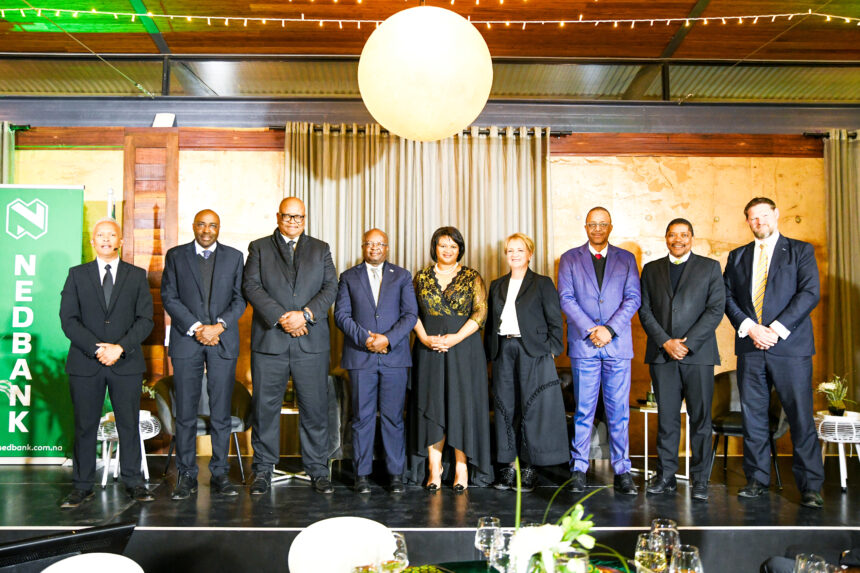Nedbank Namibia recently hosted another successful evening of industry discussions, this time bringing together an inspiring cohort of industry leaders and government officials in the oil and gas industry.
The engagement served as a platform to cultivate collaborations among regional neighbours, government entities and Namibia’s major oil and gas industrial sectors, allowing them to discover synergies and uncover the unexpected connections.
Opening the evening’s proceedings, Nedbank Namibia managing director Martha Murorua underscored Namibia’s promising economic growth trajectory.
“Our economy is poised to capitalise on substantial opportunities in green hydrogen technology and oil and gas sectors,” she said, adding that traditional industries like mining and fishing, which have long been the backbone of the Namibian economy, are also experiencing significant growth.
Director general of the National Planning Commission Obeth Kandjoze gave an overview of the latest developments in the local oil and gas sectors. He highlighted the Namibian economy’s robust growth in 2023, citing a 4.2% increase driven primarily by expansion in mining and substantial investments in oil and gas exploration. “Even prior to commencing oil production, this industry has significantly contributed to our country’s economic growth,” he said. “In 2023, global oil consumption reached 103 million barrels per day, along with 4 trillion cubic metres of natural gas consumed. Considering the immense global demand for these resources, imagine the vast potential we have yet to harness when we begin local production.”
Regarding environmental concerns, he told delegates
government remains committed to stringent environmental management. “We know the magnitude of the opportunities that lie ahead for us and that if we play with the environment, that opportunity will be taken away from us,” he warned.
Kandjoze also echoed the vision of the late President Hage Geingob, highlighting the government’s dedication to forging collaborative partnerships with private sector entities who share the passion and dedication for inclusive growth in Namibia.
“Today, more than ever, we must stress the need for advancing economic development where no one is left out, no matter their race, gender or creed,” he said.
In his address, the president of the Namibia Chamber of Mines and MD of Dundee Metals, Zebra Kasete, shed light on the potential synergies between the mining and oil and gas sectors in stimulating economic growth.
He highlighted to the delegates the significant growth potential that lies within mining sector, historically the largest contributor to Namibia’s GDP, saying plans are afoot for the opening of two new mines before 2030.
Kasete stressed the symbiotic relationship between the mining and oil sectors, noting the considerable environmental pressure on major oil companies to decarbonise, a process that requires the use of metals.
“To be environmentally-compliant, they will need the metals we mine such as copper, lithium, uranium, and iron ore, among others,” he said adding: “The oil and gas industries have already started moving into the mining space for this purpose, and given their substantial financial resources, they can significantly expedite our supply chain processes.”
He also highlighted the mutual demand for skilled labour in the mining, oil and gas and green hydrogen industries, including artisans, electricians, welders, geologists and engineers.
“Collaboration is crucial. We must foster partnerships with the government and tertiary institutions to establish training facilities that can expand the talent pool, and equip our workforce with essential skills. Without this investment, mines risk losing our workforce to the more financially-robust oil industry
giants,” Kasete said.



